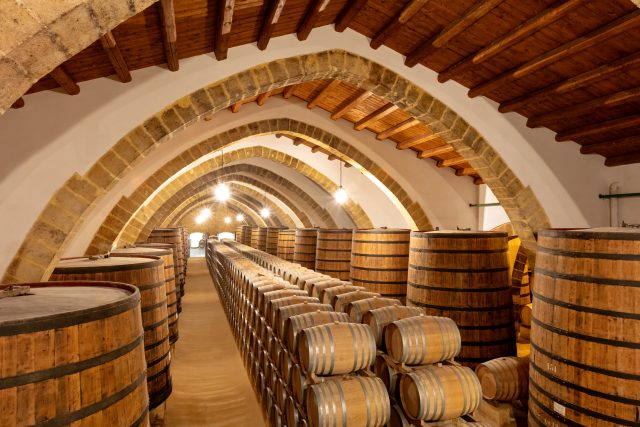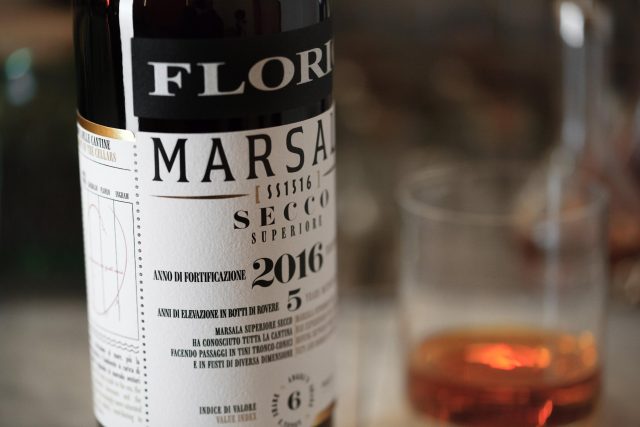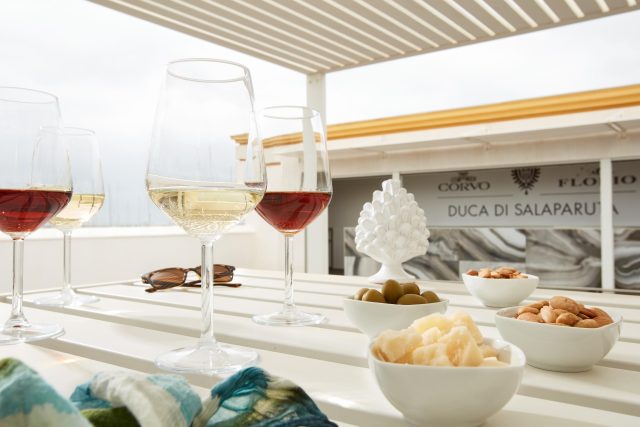This website uses cookies so that we can provide you with the best user experience possible. Cookie information is stored in your browser and performs functions such as recognising you when you return to our website and helping our team to understand which sections of the website you find most interesting and useful.
Location has a ‘huge impact’ on how Marsala ages
Barrel location has such an impact on maturation at Marsala producer Cantine Florio that “no two casks taste the same”, according to its cellar guide.

There are currently more than 3,000 casks – ranging from 225 litre barriques to 640 hectolitre barrels – holding 5.5 million litres of Marsala wine residing in Cantine Florio‘s cellars in Sicily.
Speaking to the drinks business during a recent visit to the producer, cellar guide Noemi Di Marino said:
“You can really observe the differences in the Marsalas from one barrel to the next when it comes to body, structure, aromas and flavours. Every barrel tastes different.”
The cellars, which span 44,000 square metres, boast four different climatic environments with varying temperature and humidity levels.
The western side lies just 95 metres from the ocean, making it more humid and lower in temperature than the eastern side, which leads to Marsalas with salty, savoury notes due to their proximity to the sea.

As you move eastwards through the cellar, the humidity drops and the temperature rises, leading to a higher angel’s share of evaporation in the casks and concentrated tertiary aromas in the wines.
The result is that no two casks at Florio are the same, allowing winemaker Tommaso Maggio the opportunity to control the evolution of his Marsalas depending on where within the cellars he decides to age them.
Cellar geography
Keen to flag up the influence of cellar geography on Marsala’s evolution, detailed information on the wine’s exact ageing location is featured on each bottle of Florio’s 10-strong Storyteller range, which is divided into three quality tiers.
“Our bottles contain details on the percentage of evaporation (angel’s share) from ageing and whether they were aged in a warmer or cooler, or more or less humid part of the cellars, which is why we speak about the ‘terroir’ of the cellars,” Pantea Sarmadi, trade marketing manager for wine at Disaronno International UK, told db.
While a number of Sicilian grape varieties, including Cataratto, Insolia and Nerello Mascalese, can be used in the production of Marsala, for Florio Grillo is king.

“We choose to focus on Grillo for our Marsalas as it’s a crossing between Catarratto and Zibibbo, and the former brings structure to our wines, while the latter brings a floral element,” Di Marino said.
Taking a purist approach to production, Florio neither makes Fine styles nor Ruby expressions.
“We don’t make Fine Marsala – the youngest style – at Florio as it’s good for cooking but not so good for drinking and we want to highlight that there’s more to Marsala than a cooking wine,” Di Marino said.
“We also don’t make Ruby styles as Marsala was traditionally made with white grapes and we want to be authentic in our approach,” she added.
Cantine Florio was founded in 1833 by Vincenzo Florio. The winery was acquired by the Disaronno group, its current owner, in 1998.



